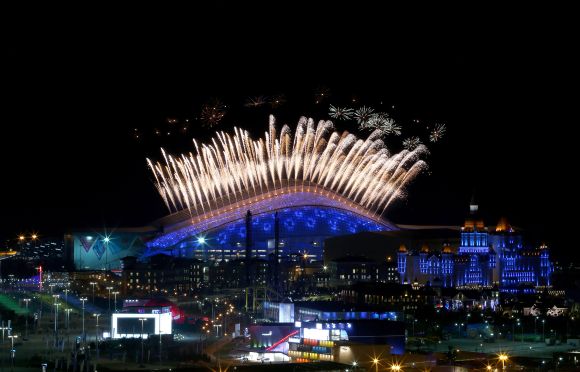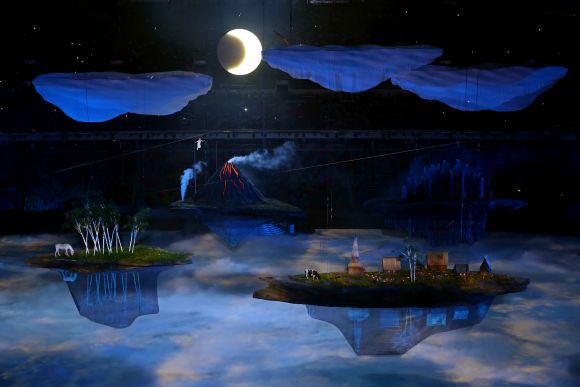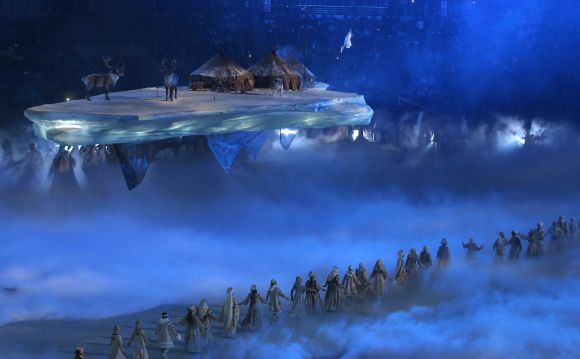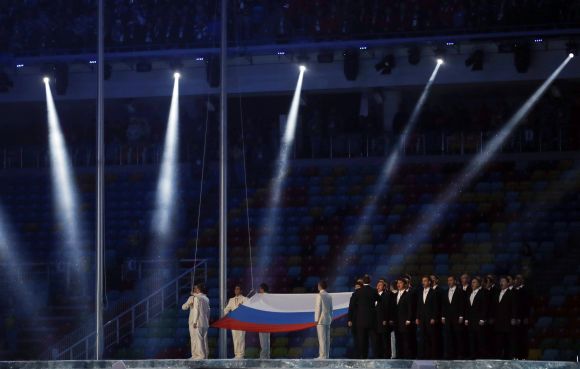Photographs: Streeter Lecka/Getty Images
The Winter Olympics opening ceremony kicked-off on Friday at Sochi's shining new Fisht Stadium on the shores of the Black Sea, and viewers around the world witnessed a journey through Russian history.
The state-of-the-art arena, one of several construction projects that have swelled the budget of the Winter Games to a record $50 billion, had 40,000 people, and the audience included President Vladimir Putin and more than 40 world leaders.
Millions more watched on television and via the Internet as Russia hosts its first Winter Olympics, an event Putin has staked his reputation on.
Run-up to the Games marred by threats
Image: Liza Temnikova as Lyubov performs Voices of Russia during the Opening CeremonyPhotographs: Quinn Rooney/Getty Images
The run-up to the Games was marred by threats from Islamist militants based in nearby Chechnya and neighbouring southern Russian regions to launch attacks, and by international criticism of Russia's new "gay propaganda" law.
Organisers have also been under fire for the huge costs involved, unfinished accommodation and amenities, and even the treatment of stray dogs in and around Sochi.
But Putin will hope the opening ceremony signals an end to the griping, as athletes, who have been largely complimentary about the facilities and organisation so far, begin to provide the thrills and spills on ice and snow.
Revolution, but no propaganda
Image: Actors perform during the opening ceremony of the 2014 Sochi Winter OlympicsPhotographs: Mark Blinch/Reuters
Details of the two-and-a-half hour show were a closely guarded secret.
"We made an imaginary journey back into the history of Russia. We want to carry a very strong, emotional message for the international audience," Russian television executive Konstantin Ernst, in charge of ceremonies at the Games told reporters in Sochi.
The ceremony included reference to the upheaval of the 1917 Russian revolution and the importance of the avant-garde art movement at around that time.
"Avant-garde predicted the Russian revolution, and the Russian revolution killed avant-garde art," said Ernst, who as director general of Channel One Russia is key in honing Putin's image for the Russian public.
He added that, unlike at the London Games in 2012, Russia could not draw on globally recognised contemporary music, meaning classical music and art would play a greater role.
Anna Netrebko to sing the Olympic anthem
Image: Performers raise the Russian national flag during the opening ceremony of the 2014 Sochi Winter OlympicsPhotographs: Jim Young/Reuters
Russian soprano Anna Netrebko, one of the biggest names in international opera, sang the Olympic anthem, and ballet stars took part in dance sequences.
Putin's role was limited to declaring the Games open, as is traditional for the host nation's head of state.





Comment
article